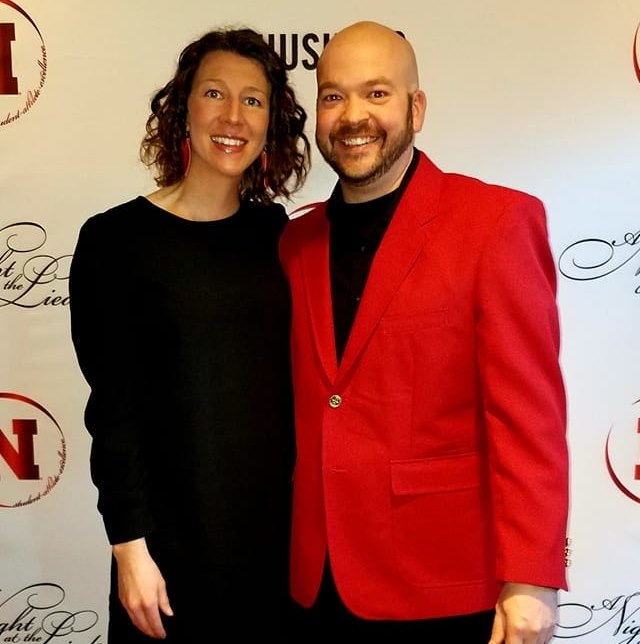Higher ed has a talent problem.
The average tenure for a gift officer is less than 18 months.
And 51% of all fundraisers plan to leave their jobs in the next two years.
This “disappearing gift officer” has a huge impact on higher ed advancement. Research shows that it costs $127,000 (or more) to replace a gift officer. Its time to improve the gift officer retention rate in higher ed.

Gift officer costs you in lost time, productivity, and connections with prospects.
Just think about the months it takes to hire, onboard, train, and get a new gift officer out on the road. It takes time. And time is money as gift opportunities and prospects just fall through the cracks.
In the same way that it’s much cheaper to retain a current customer than acquire a new one, it’s far better to improve gift officer retention with high-performing development officers than to try and hire a replacement.
Smart managers know this and work proactively to provide solutions for their teams, helping reduce staff turnover and keep their best fundraisers fundraising.
We talked to Dr. Nick Linde, Assistant Vice President of Development at the University of Nebraska Foundation, about taking on turnover. Nick and his wife, Dr. Kasey Linde, who is an instructor in the University of Nebraska’s College of Business, both earned their doctoral degrees from St. Cloud State University. Nick’s dissertation was on what motivates gift officer retention. Together, the two have written an article “Keeping top fundraisers: Factors that influence the retention of high-performing gift officers,” which will appear in the Journal of Education Advancement & Marketing this spring.

The three reasons gift officers stay
(Hat tip to “Why people stay: Using job embeddedness to predict voluntary turnover,” which Kasey and Nick used to inform their own research.)
Community Links
Fundraisers stay in their jobs when they have strong bonds to the community — both on-campus and in the area. That can be from volunteer, church, or civic involvement or just the presence of family in the area. The more fundraisers are connected to where they live, the less likely they are to leave.
Job Fit
The job has to be right for fundraisers to stay. Are they tied to the mission of the organization? If they’re alumni, then there’s built-in identity and affinity. Fundraisers stay when they believe their work makes a difference.
Personal Sacrifice
Gift officers, like all employees, stay in their jobs when it’s easier than leaving. We all make decisions in our best interests. If it’s more painful to leave than it is to stay, then we’re more likely to remain in place. For example, if a gift officer’s spouse gets a great, high-paying job two states away and wants to move, they’ll follow because it’d be too great a sacrifice to live apart and lose that relationship.
Four ways to retain your best fundraisers
Support community connections
“At Nebraska, we try to invest in our gift officers beyond our own professional development and get them interacting in the larger community, whether it’s serving on a local board or coaching little league or flag football,” Nick said. “It’s about reducing the ‘and/or’ choices. You get to work someplace great AND be the coach and mom or dad. It’s not: work OR do what you want.”
Higher ed can’t always offer fundraisers more money to stay — especially at state institutions. Sometimes the only retention tool a manager has is to give a gift officer more flexibility and help enhance connections.
Can you let someone out an hour early every week to coach a team sport? Leverage your network connections to get them on a board or volunteering with a local nonprofit? The more you can help your team feel like they’re closer to their family and community because of where they work, the more likely they are to stay.
Extend flexibility to the workplace, as well.
“I’m in favor of promoting professional flexibility throughout our industry,” Nick said. “Right now, advancement teams often put people in a box. Typically, shops don’t allow people to dabble in planned giving or annual giving if they’re on the frontlines. You’re either a principal gift officer or a discovery gift officer. We aren’t flexible and don’t let people work with people at different stages of the donor cycle, which means they don’t get the full experience. If we did, it would help keep things fresh and help people understand what they like to do.”
In your one-on-one meetings, constantly ask questions about what your high-performers want to do. What are their career ambitions? Are they interested in another project or learning how another team does things? Find ways to help them learn and grow professionally within your organization and they’re more likely to stay.

Emphasize the mission
Fundraisers tell impact stories to donors all day every day. But how often do they see the result of their work? As a leader, you can help your team feel more connected to the impact of their efforts.
Have your team attend classes, sit in on guest lectures, interact with students, and get involved with campus traditions. Not only will they have more stories to share with donors, but they’ll feel a stronger connection between their work and the results they help achieve.
Keep gift officers working after they move
Even if you offer a ton of personal and professional flexibility or give a fundraiser more money or a promotion, you can’t guarantee you’ll keep them. They may still move to work closer to family or to follow a partner to a new job.
But with the explosion of remote work positions (up 159% in the last 15 years), adding remote gift officers to your team makes sense for retention and cost-savings. If you want to keep a fundraiser on your team and they’re moving to a location with untapped major gift potential, there’s no reason they can’t continue working for your university even after they’ve moved away from campus. The major gifts team at UC Berkeley cut travel expenses by 33%, increased dollars by 40%, and doubled qualifications after adding fully remote development officers.
Giving a high-performing fundraiser more flexibility or responsibilities can look like preferential treatment. But if they’re a true top-performer — and if they continue exceeding expectations — then they’ve earned the right.
“You have to have an institutional will to ‘play favorites’ because these are the people you’re willing to be flexible for, and then be prepared to answer questions from others when they want the same benefit,” said Nick.
From setting metrics for fundraisers to onboarding, we’ve got everything you need to know about managing gift officers.